Does Trump really want peace on Korean peninsula?
US President Donald Trump is in the unique position to finally resolve the Korean crisis, but does he really want peace on the Korean peninsula, asks says Dennis Etler, an American political analyst who has a decades-long interest in international affairs.
Etler, a former professor of Anthropology at Cabrillo College in Aptos, California, made the comments in an interview with Press TV on Saturday.
American, Japanese and South Korean leaders have praised the momentous decision made by North Korean leader Kim Jong-un to halt his country’s nuclear tests and intercontinental ballistic missile launches and abolish an atomic test site as a sign of earnestness in seeking peace with rival South Korea.
The remarks came a few hours after the North Koran leader said in a statement that his country’s quest for nuclear weapons was “complete” and it “no longer needs” to test its weapons capability.
“The narrative in the Western media regarding the denuclearization of the Korean peninsula is very one-sided. It is focused almost entirely on the Western objective of neutering North Korea’s nuclear ambitions. But why, it may be asked, did the Democratic People’s Republic of Korea (DPRK) go nuclear to begin with?” Dennis said.
“The US waged war on the Korean peninsula in the early 1950s in what was essentially a civil war between the North and the South. China and Russia backed the North, the US and its allies the South. It was a devastating conflict that left Korea in ruins with the North reduced to rubble with millions of casualties. An armistice was signed, a demilitarized zone (the DMZ) was demarcated and two rival states, the Democratic People’s Republic of Korea (DPRK) in the North and the Republic of Korea (ROK) in the South were established. No peace treaty normalizing relations between the two Koreas or between the DPRK and the US was signed. It is this perpetual state of war between the DPRK and the ROK, and between the DPRK and the US which is the crux of the problem,” he stated.
“The US and its proxy the ROK have refused to sign a peace treaty with the DPRK and cease hostilities. As a result the DPRK has seen itself under continuing and constant threat from US aggression for nearly 70 years. The US occupies South Korea with over 20,000 troops and has a nuclear arsenal pointed at the DPRK. The US has vilified North Korea and expressed its desire to see regime change and the DPRK government overthrown and replaced with one subservient to US interests in East Asia,” he added.
'DPRK developed nukes to deter US aggression'
“As a consequence the DPRK saw it necessary to strengthen its defenses and begin a nuclear weapons and missile program as a necessary deterrent to the aggressive posturing of the US and its allies, including Japan which brutally occupied Korea from 1910-1945. North Korea has sought one thing throughout the decades, a formal peace treaty and full recognition. They have made multiple attempts to have a summit between their President and the President of the USA. All their entreaties however have been met until recently with rejection,” he continued.
“If the recent past is reviewed it will be seen that the DPRK has pursued its nuclear objectives in order to finally get the peace process off the ground in the face of US intransigence. It has been willing to suffer the slings and arrows of US discontent in the form of severe economic sanctions. It has made supreme sacrifices in the pursuit of peace. The success of the North in developing its nuclear weapons and missile delivery programs finally got the full ire and attention of the US and put the impasse between the two at center stage,” the analyst said.
“But why, may it be asked, has the US been so resistant to seeking a peaceful resolution to the Korean conflict? The conflict at root serves one major purpose, to allow the US to continue to station thousands of troops in East Asia, and to deploy its air and sea forces there in order to contend with and contain China which is seen as the main obstacle to US hegemony and imperialist ambitions in the Asian-Pacific region,” he said.
“This subtext must be taken into account to understand the situation on the Korean peninsula. Since the Korean War China has been the DPRK’s guarantor. It intervened militarily to repel US aggression during the war and has since had a mutual security treaty with the DPRK. While ensuring its survival it has not been enough to normalize relations between the DPRK, the ROK and the USA. China has consistently called for a peaceful dialogue between all concerned parties, leading to the eventual signing of a peace treaty and an end to all hostilities, including the removal of all sanctions and the establishment of a framework for eventual Korean unification. The US has consistently resisted these overtures,” the scholar said.
'China can be an honest broker on Korean peninsula'
“The establishment of the North Korean nuclear deterrent changed the dynamics on the Korean peninsula. It led to the reestablishment of bilateral relations between the North and South with the joint team for the Pyeongchang 2018 Olympic Winter Games. This thawing of ties between the two Koreas has led to a proposed summit between the leaders of the North and South and a summit between President Kim of the DPRK and US President Trump,” he said.
“In a real sense these developments have blind-sided the US and forced it to accept conditions it has previously rejected. The two Koreas are now actively pursuing the normalization of their relations and the signing of a peace treaty regardless of the US position. China has also actively promoted a rapprochement between itself and the DPRK. In return the DPRK has for all intents embraced the Chinese model for economic development. China, with good relations with both North and South Korea, can serve as an honest broker to help ease tensions between the two Koreas and facilitate their reconciliation,” he noted.
“The ball is now in the US court. Trump is in the unique position to finally resolve the Korean crisis. He can make the case that his tough stance led the way. If that face-saving maneuver leads to peace on the Korean peninsula it will be a small cost indeed for Korea, China and the global community which seeks peace and security in the interests of economic growth and development for all the world’s people,” the academic concluded.
UK engaged in 'systematic' suppression of pro-Palestine voices: Report
Hundreds of Greeks protest US warship arrival in Crete
Iran warns Trump against decisions based on false information
Iran embassy rejects 'fabricated' French reports on domestic affairs
Trump’s military buildup against Iran on Netanyahu’s behalf is a gambit doomed to fail
Iran dismisses US 'big lies' on nuclear, missile programs
CIA‑founded NGO admits deploying Starlink satellites for Iran riots
VIDEO | French comedian targeted by Rothschild and Epstein for his shows on Palestine








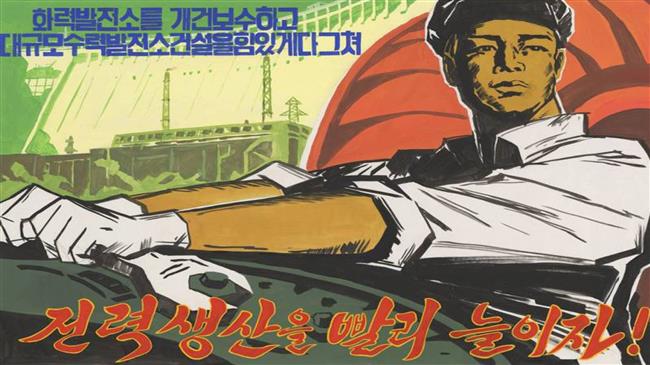
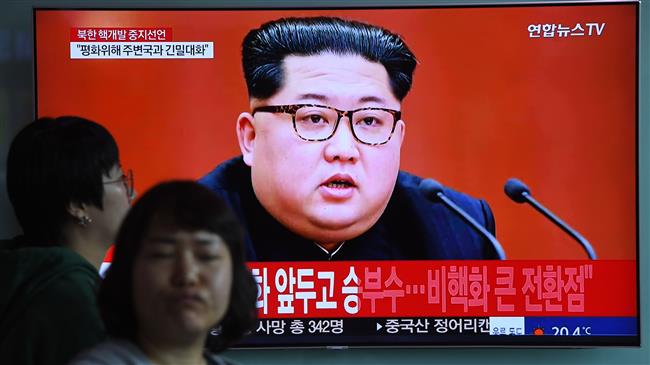
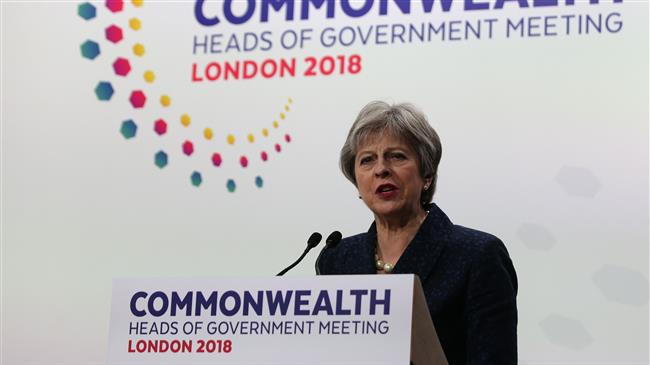
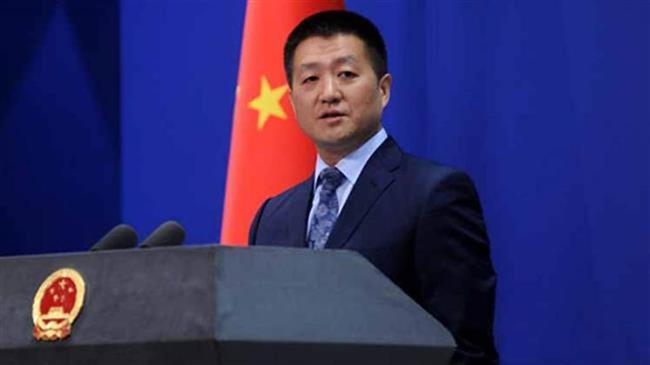
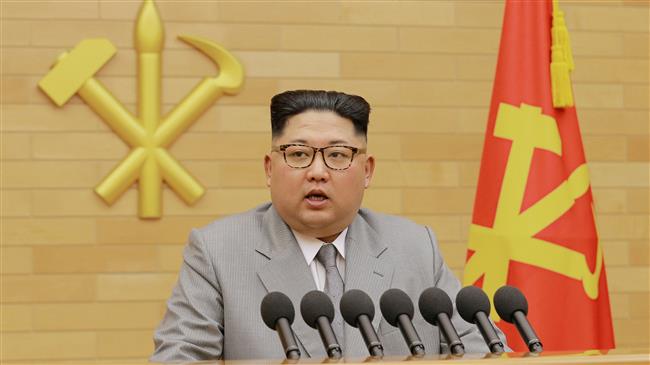
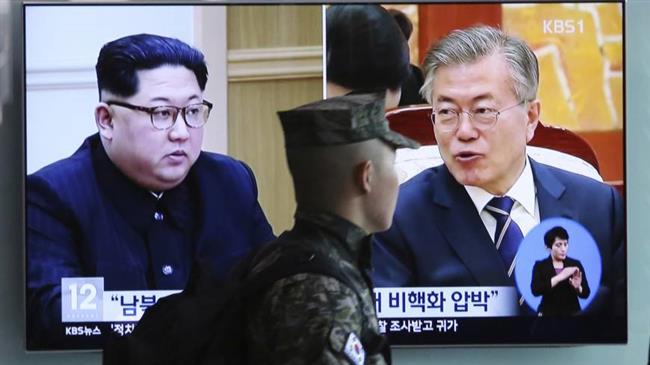

 This makes it easy to access the Press TV website
This makes it easy to access the Press TV website